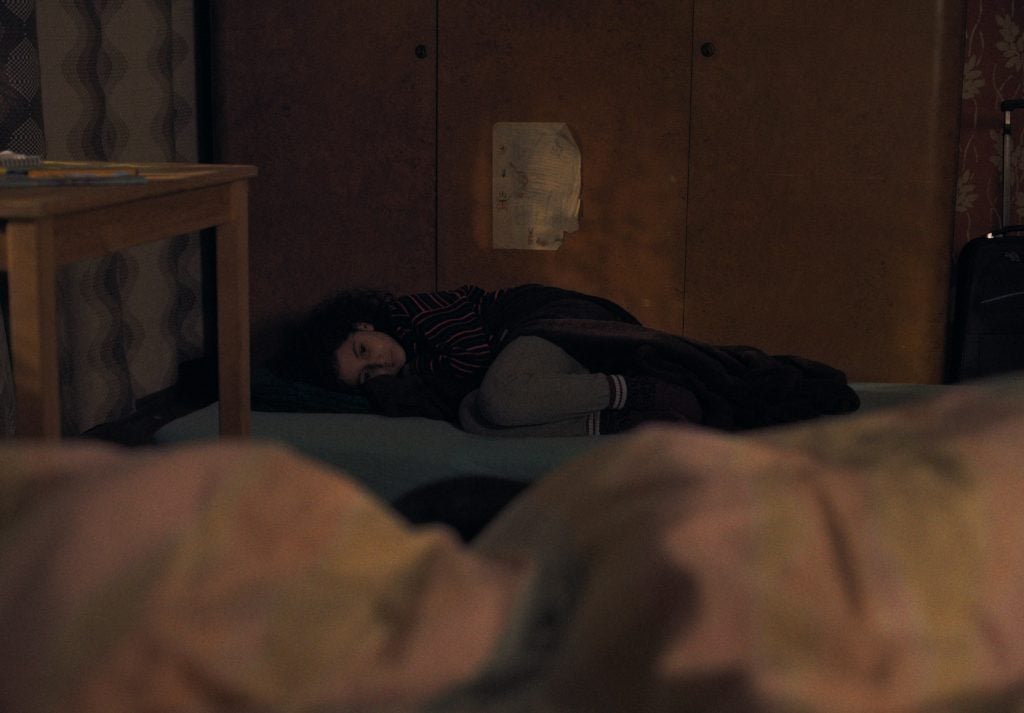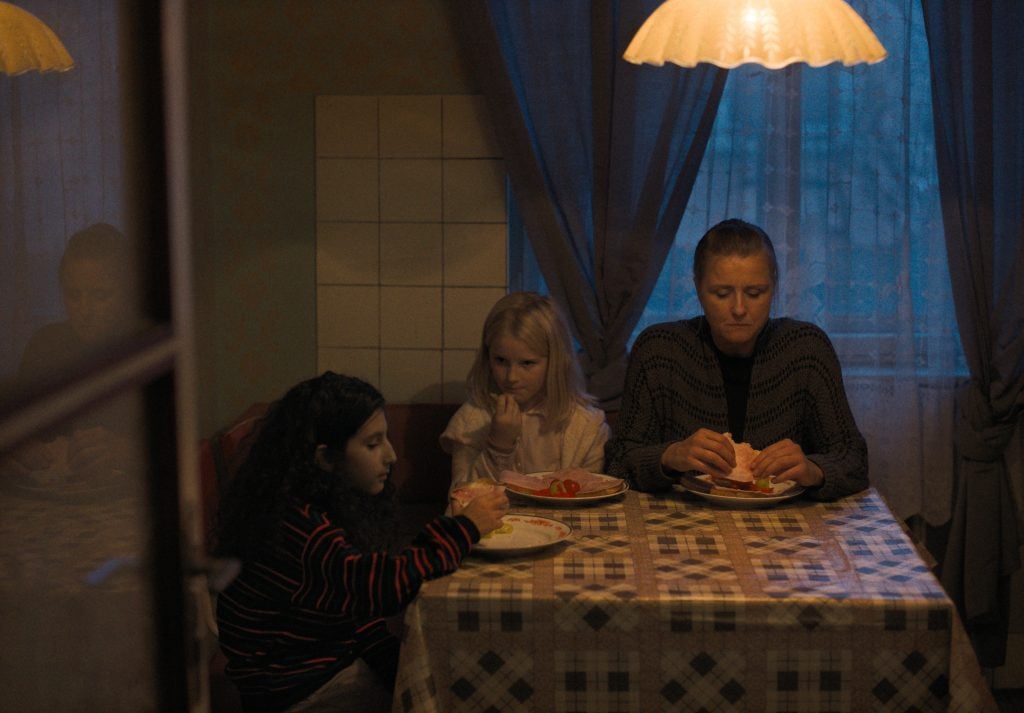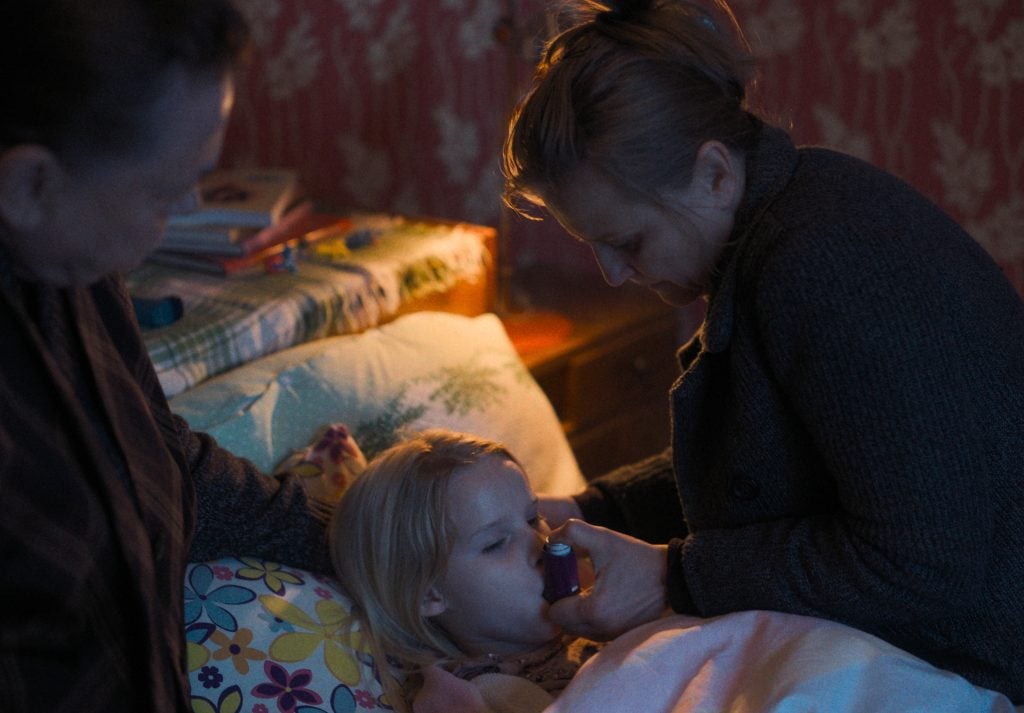The Professional Parent is an intense short drama from Slovakian director Erik Jasaň. It offers an unflinching look at the price of poverty, the immigrant situation, racism, abuse, and the global financial crisis. In a recent interview with Jaylan Salah from Geek Vibes Nation, Jasaň discusses difficult scenes, casting child actors, and working-class cinema.
Geek Vibes Nation (Jaylan Salah): What compelled you to tackle this difficult story for your debut film?
Erik Jasan: The power of truth. Professional parenting is paid work from home, where you take care of children assigned to you by a children’s home. However, there are some foster parents who take in Roma children despite having racist views towards the Roma. This generational stigma against the Roma population is so deeply rooted that it’s passed down from one generation to the next, and the belief still persists that Roma people are bad. I felt that this barrier needed to be broken down a bit, which is why I decided to tell this story.
GVN: How was the casting process for this short?
EJ: I cast the lead actress right away. Ela Lehotská naturally exudes maternal instincts, but she also has a certain coldness that I needed for our film, since her character eventually becomes the antagonist. The role of the grandmother (Grandma) is quite similar in that sense. Mrs. Oľga Solárová naturally projects a desire to help others, even though she bears the generational stigma more deeply than any other character. What’s sympathetic about her is that she ultimately reconsiders her attitude.
The character of Martinka, played by Klára Sviteková, radiates positivity. She’s like a blank slate, untainted by the opinions of the older generation. This character symbolizes a kind of hope in the film. The role of Samantha, played by Marianna Kroková, was clear from the very beginning. She’s an exceptionally talented child actress, full of spirit and unafraid to step into conflict. Her character would prefer to return to her biological mother, but unfortunately, she can’t.
GVN: What important conversations or discussions do you wish The Professional Parent would stir?
EJ: We need to talk about what must be done to break this stigma. We should seek solutions to this situation. The film is not even about professional parenting; it’s about how we’re capable of throwing away our moral values for our own benefit, or for the benefit of our loved ones. So that one day we can say that we no longer need to worry whether someone is Roma, white, Black, Asian, or otherwise, because we are all human.
GVN: How do you think your short fits into today’s conversation regarding the treatment of immigrants in the Western world?
EJ: Exclusion is the right word. Current governments are trying to separate migrants from the native population, but they tend to forget that this only widens the gap of misunderstanding between cultures and causes us to neglect cultural diversity. The more I know about another culture, the better I can communicate with them, find ways to coexist, to collaborate, or simply build friendships.
GVN: How do you think this film is an important introduction of Slovak films into international award conversations?
EJ: Because it shows the truth, without sugarcoating. And it doesn’t matter whether the film is Slovak, Qatari, or Australian; what matters is what it shows. If it shows the truth and portrays real situations, then the film can be screened and compete internationally, because it communicates with the audience in an honest way.

GVN: Why do you think that local stories that dig deep inside rural societies have a universal resonance to them?
EJ: I wouldn’t categorize it as a local film, because the theme it addresses is global. It deals with inflation and what we are willing to do to improve our financial situation.
It’s about how we’re able to suppress our moral boundaries just to live better.
It’s about cultural diversity and how we are drifting apart. It affects all of us who encounter people of different races daily, and who learn from them about their cultures and ways of life in order to become closer.
GVN: How important do you think working-class cinema is in today’s world?
EJ: Because it depicts the most vulnerable group of people, those most likely to push past their own boundaries.
GVN: You worked with two child actors. What was it like directing them, especially to express such complex emotions?
EJ: It was a great collaboration, very intense. Before filming, we had acting rehearsals where we talked about these situations and tried to find clues to help us understand them. With the actress playing Samantha, it was somewhat easier because her mother said she had gone through something similar as a child. The actress playing Martinka was very perceptive and had already encountered racism in school.
GVN: How did you, as a director, ensure a safe environment for your actors playing such complex, sometimes disturbing character dynamics, especially between Samantha and Ingrid?
EJ: Both actresses became friends, to the point where I felt that they were taking the situations seriously, yet still enjoying themselves. There was no hatred. I always try to maintain a positive attitude on set and aim to be friendly with all departments, because I value their work and the fact that we are trying to create something together. That connection worked well for the dynamic between Samantha and Ingrid’s characters.

GVN: What were the most difficult scenes to shoot?
EJ: Technically, the most demanding scene was when Ingrid goes to work as a sex worker; we had to light a large outdoor area. It was under a highway, so the sound technician had some trouble, but we managed to get it done. The actresses disliked the scene where they sat and ate toast because it was repeated many times, and they were tired of eating so much ham and tomato toast.
For me, as a director, the most difficult scene was when Ingrid slaps Samantha because of the choreography involved. I was also worried about how Samantha would land on the support mat, which is not visible in the film but was there to soften the fall. Lastly, the original setting didn’t feel aesthetically right to me, so I ended up changing the choreography on the spot during the shoot.
The Professional Parent will screen next at the Richmond International Film Festival in Virginia and at the BAFTA-Qualifying British Urban Film Festival in London.
Jaylan Salah Salman is an Egyptian poet, translator, and film critic for InSession Film, Geek Vibes Nation, and Moviejawn. She has published two poetry collections and translated fourteen books for International Languages House publishing company. She began her first web series on YouTube, “The JayDays,” where she comments on films and other daily life antics. On her free days, she searches for recipes to cook while reviewing movies.






